Extension Foundation Online Campus
Search results: 548
Pen Rider and Processors on-line Horse Safety and Care is for feedlot and cattle producers and employees. In this course participants will learn how to safely handle horses when working in feed yards as well as basic horse care and management.
For more information about the course or how to enroll contact Kathy Anderson with the University of Nebraska Extension at kanderson@unl.edu
This course requires a $25 registration fee. Once the registration fee is paid, you will get an email with an ENROLLMENT KEY.
Please go to: Pen Rider and Processors Horse Safety and Care Certification Course at http://marketplace.unl.edu/extension/programs/feedlot-horse.html to enroll.
- Teacher: Kathy Anderson
- Teacher: Colleen Brady
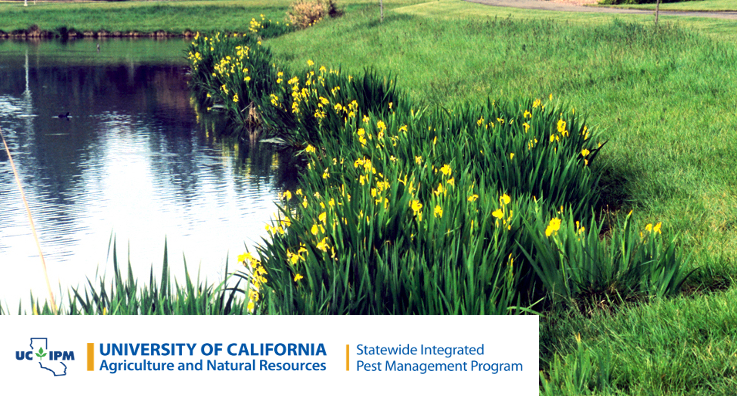

Learners will be able to describe why calibration is important and be able to list the materials and tools needed in order to calibrate equipment. They will see various examples of pesticide application equipment for liquid, granular, and soil drenching and soil injection applications. The course includes many examples of calculations needed to calibrate equipment. The course contains video so it requires a device that can play audio and video.
- Technical support: UC IPM Online Training Support
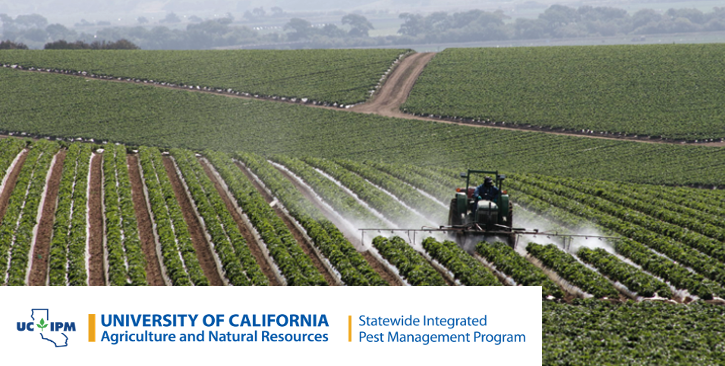

- Technical support: UC IPM Online Training Support
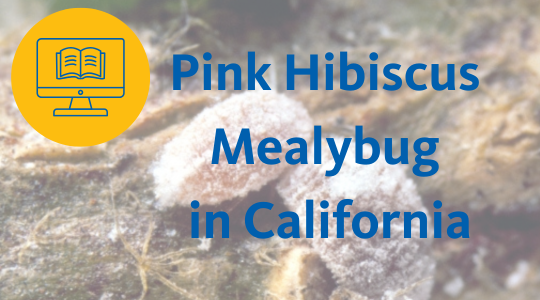
Course overview
The pink hibiscus mealybug (Maconellicoccus hirsutus) is an invasive insect that is currently in California and has the potential to have a profound impact on our agriculture and natural environment. A key to slowing the spread of pink hibiscus mealybug is early detection and rapid response, which requires education of citizens and resource professionals. This course explores the pest's lifecycle, how they feed, travel and what to do if you see it in California.
Who should enroll?
Residents of California, Master Gardeners, Arborists, Nursery Professionals, and other stakeholders.
How to enroll
Continuing Education Units
- UC Master Gardeners are eligible for 1 hour of continuing education (CE) for completing this course.
Need Help?
- For assistance with login, course enrollment, contact campushelp@extension.org
- For assistance with progress through the course or certificate, contact mgtraining@ucanr.edu
The California Department of Agriculture and the University of California Master Gardener Program.
Teacher
Lauren Snowden, UC Master Gardener Online Training Specialist

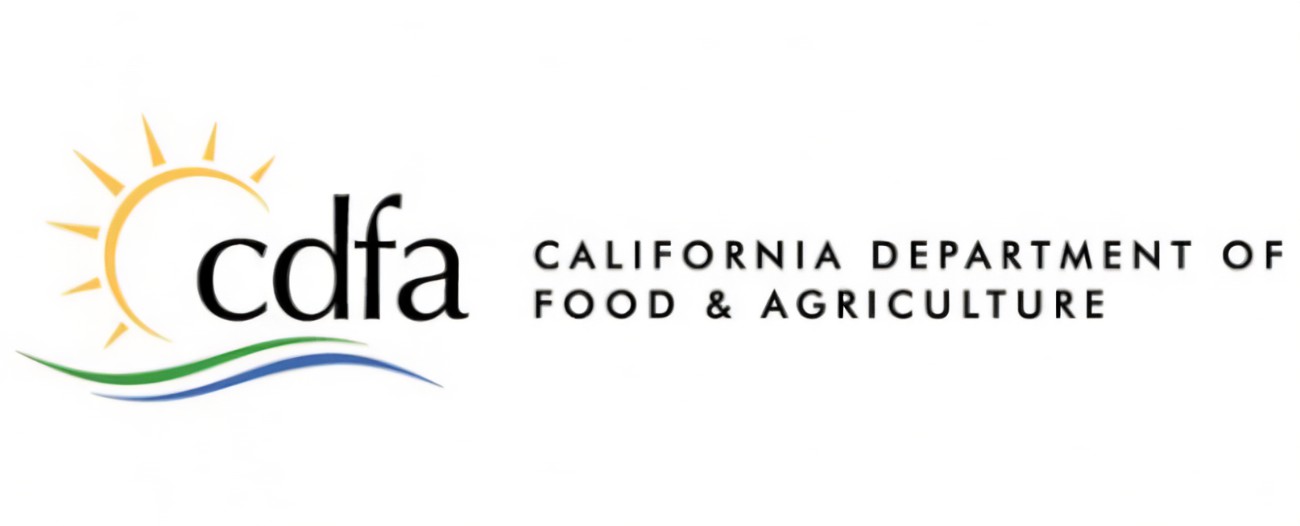
The University of California Division of Agriculture & Natural Resources (UCANR) is an equal opportunity provider. (Complete nondiscrimination policy statement can be found at (pdf, opens in another window) http://ucanr.edu/sites/anrstaff/files/215244.pdf)
Inquiries regarding ANR’s nondiscrimination policies may be directed to UCANR, Affirmative Action Compliance Officer, University of California, Agriculture and Natural Resources, 2801 Second Street, Davis, CA 95618, (530) 750-1343.
_______
The material and information presented here are for general education and information purposes only and do not constitute technical advice relating to individual and site-specific issues. Reach out to the University of California (UC) Cooperative Extension office in your county for unbiased, research-based solutions. Any reference to commercial products, companies, and organizations does not imply an endorsement by The Regents of the UC.
- Teacher: UC Master Gardener Online Training Support
- Teacher: Lauren Snowden
Thank you for logging in to complete this online Expanded Food and Nutrition Education (EFNEP) lesson. You should have received an enrollment key from your class instructor. Enter this enrollment key in order to access and complete this lesson.
- Teacher: Megan Berthiaume
- Teacher: Megan Berthiaume
Gracias por ingresar a la página Web para completar esta lección de Educación sobre Nutrición y Alimentos (EFNEP). Usted debió haber recibido una clave de inscripción de parte de su instructor. Ingrese esa clave de inscripción para acceder y completar esta lección.
- Teacher: Megan Berthiaume

Estimating Employee Costs & Tradeoffs with Investments in Mechanization
Learn how to estimate the complete cost of employees, including payroll taxes, workers compensation and any benefits you might offer beyond regular hourly wages. This two-part, online workshop will also introduce a tool for exploring how investments in mechanization can affect your labor needs and costs. The workshop is part of the 2022 Farm Labor Dashboard Workshop Series, which focuses on helping farmers build practical labor management knowledge and skills.
Presenter: John Hendrickson, University of Wisconsin Center for Integrated Agricultural Systems.
Session Format: Sessions will be delivered via Zoom. Connection information, along with additional resources and information will be available through the workshop site.
Fees. The workshop fee is $35. To purchase and enroll in the course, click the following button:
Scholarships and multi-session discounts are available, reducing the workshop fee to $20. However, these options are only available for people who request – and receive approval – for reduced fees in advance of registration and payment. To request either a multi-session discount or scholarship, please fill out this online form.
Please wait to register until you hear back from us via email. Decisions are generally made within 3 business days. If you are approved, you will receive a voucher code that you will use during the registration/payment process to activate a reduced registration fee for the workshops you indicated you wish to enroll in.
- Instructor: Beth Holtzman
- Instructor: Mary Peabody
Students will learn the impact of environments and environmental stimuli on the estimates of agricultural and breeding value of crop varieties, the use of statistical and graphical techniques to analyze and deal with G x E, and to exploit clustering of environments in variety testing, selection, and commercial recommendation.
For more information or to enroll contact Leah Sandall, University Nebraska-Lincoln, at lsandall5@unl.edu
- Teacher: Diane Nolan
- Teacher: Leah Sandall
For more information or to enroll please contact: Keenan Amundsen kamundsen2@unl.edu, Leah Sandall lsandall5@unl.edu
- Teacher: Keenan Amundsen
- Teacher: Leah Sandall
Plant Breeding Training Network (PBTN) Discussion is a discussion group that will provide the opportunity for professional plant breeders and those interested in plant breeding topics to engage in discussion. The group may facilitate networking connections among participants and answer questions in the area of plant breeding. The target audience for this discussion group is current professional plant breeders, plant breeding students and others interested in discussion surrounding plant breeding topics.
Facilitators for this group are:
Leah Sandall (lsandall5@unl.edu<mailto:lsandall5@unl.edu>, Univ. of Nebraska-Lincoln),
Jason Cook (jason.cook3@montana.edu<mailto:jason.cook3@montana.edu>, Montana State Univ.)
Deanna Crow (deanna.visser@montana.edu<mailto:deanna.visser@montana.edu>, Montana State Univ.)
- Teacher: Leah Sandall
This module is designed to provide agribusiness professionals an
understanding of the genetic basis for variation in crop and weed
populations. Learners will use classical and molecular genetics to
explain differences seen in plant families and populations. Content in
this module will help to explain new traits in crops, whole-plant trait
observation and molecular analysis. Examples from genetic studies on
both crop and weed species are presented for evaluation and
relationships between crops and weeds are discussed.
The target audience is the agriculture professional. For more information or to enroll contact Kathy Schindler at kschindler1@unl.edu<mailto:kschindler1@unl.edu> or 402-472-1730.
- Teacher: Diane Nolan
- Teacher: Leah Sandall
- Teacher: Keenan Amundsen
- Teacher: Leah Sandall
- Teacher: Leah Sandall
- Teacher: Leah Sandall
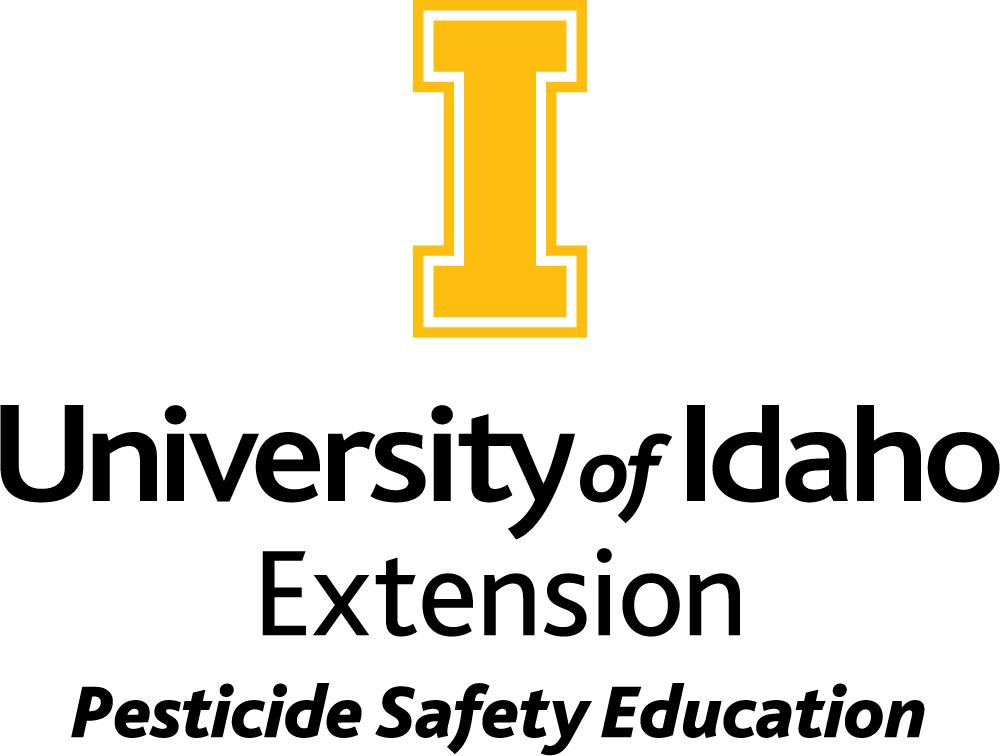
Recertification Credits are available for this course.
This pesticide recertification course discusses two major rodent pests in Idaho. The course contains useful information for controlling these rodents with cultural practices and trapping. Additionally, current information on registered rodenticides is covered.
This module has been approved by the Idaho State Department of Agriculture (ISDA) - Seminar #2024-633 for 1-ISDA pesticide credit.
If you have questions related to this course, please email: cals-ipm@uidaho.edu at the University of Idaho Extension.
- Teacher: cals ipm

Recertification Credits are available for this course.
This
pesticide recertification course is about the toxicity and non-target
effects of pesticides to Idaho pollinators and beneficial
insects. Several examples and research studies are explained.
This course has been approved by the Idaho State Department of Agriculture (ISDA) - Seminar #2024-638 for 1-ISDA pesticide credit.
If you have questions related to this course, please email: cals-ipm@uidaho.edu at the University of Idaho Extension.
- Teacher: cals ipm
Learn to utilize common and effective tools and practices to improve communication and employee performance on your farm. In part-one of this workshop, you’ll also learn how to use an online Personnel Policy Generator to develop a custom policy manual for your operation. Farm policy manuals are effective tools to establish consistent expectations with employees, support supervision and help your farm to be in legal compliance. Participants will have the opportunity to create their own farm policy manual, with feedback from educators.
Presenters: Kenesha Reynolds and Seth Wilner, University of New Hampshire Cooperative Extension.
The workshop is part of the 2022 Farm Labor Dashboard Workshop Series, which focuses on helping farmers build practical labor management knowledge and skills.
Fees. The workshop fee is $35. To purchase and enroll in the course, click the following button:
Scholarships and multi-session discounts are available, reducing the workshop fee to $20. However, these options are only available for people who request – and receive approval – for reduced fees in advance of registration and payment. To request either a multi-session discount or scholarship, please fill out this online form. Then wait to register until you hear back from us via email. Decisions are generally made within 3 business days. If you are approved, you will receive a voucher code that you will use during the registration/payment process to activate a reduced registration fee for the workshops you indicated you wish to enroll in.- Instructor: Beth Holtzman
- Instructor: Mary Peabody
En este curso interactivo, los residentes y visitantes de Oregón y de otros estados del oeste pueden obtener información sobre el evento de la zona de subducción de Cascadia y aprender a prepararse. Este curso se ofrece gratis al público en campus.eXtension.org a través del programa de Servicios de Extensión de Oregon State University.
Este proyecto es apoyado por el Programa de Subvenciones Competitivas Smith-Lever para Necesidades Especiales del Instituto Nacional de Alimentación y Agricultura (Premio # 2018-41210-28702).
- Teacher: Glenda Hyde
- Teacher: Lauren Kraemer
- Teacher: Victor Villegas
- Teacher: Megan Berthiaume
Preparing to be a Professional Horse Show Judge is a self directed course that will teach adults how to prepare
to be a professional horse show judge.
The course fee is $20. To purchase and enroll in this course, please click Buy/Enroll below.
For more information about the course please contact Kathleen Anderson, University of Nebraska Extension, kanderson1@unl.edu
- Teacher: Kathy Anderson
- Teacher: Colleen Brady
- Teacher: Kris Hiney
In this Preserve@Home course, participants will be introduced to food safety and food preservation science, gain an understanding of the principles and science behind foodborne illnesses and food preservation methods and be able to apply these principles to safely preserve food by methods of boiling water canning, pressure canning, pickling, freezing and drying.
The next class will start in January.
For more information, contact Laura Sant, University
of Idaho Extension, at lsant@uidaho.edu
- Teacher: Larissa Bonnet
- Teacher: Surine Greenway
- Teacher: Eric Matson
- Teacher: Deanna Poulsen
- Teacher: Amy Robertson
- Teacher: Laura Sant
- Teacher: Kari Ure
- Teacher: Grace Wittman
The audience for this course includes aspiring and practicing industrial hemp growers and interested ag service providers, including Extension educators.
As a result of participating this online proceedings, participants will learn about latest research results, production information, regulatory requirements for Vermont, and resources available regarding industrial hemp production.
Click here to purchase access to this course:
Contact Susan Brouillette at susan.brouillette@uvm.edu for additional information.
- Teacher: Susan Brouillette
To provide education and resources for new technical assistance providers with foundational information around grazing planning and providing grazing-related support to production livestock farmers in Vermont. Topic focuses include how to develop a grazing plan, grazing infrastructure, grazing record keeping, soil health in grazing systems, and pasture improvement and maintenance strategies.
- Teacher: Shannon MacDonald
- Teacher: Amber Machia
- Teacher: Sara Ziegler
The Professional Loggers Program (PLP) is a voluntary certification program for New Hampshire's loggers. This program teaches basic silviculture, wildlife management, and improving forestland aesthetics. It also teaches forest professionals about laws that govern their work and regulations that need to be followed. Another very important aspect of this course is safety. Every participant receives instruction in basic first aid, CPR, AED and techniques for operating safely and productively. Certified loggers will have the basic understanding and knowledge necessary to improve their working relationship with New Hampshire's forestry community.
- Teacher: Cheri Birch
- Teacher: andrew fast
- Teacher: Deb Park
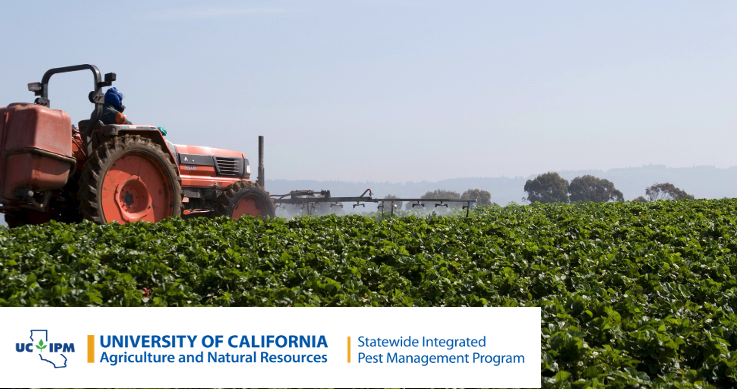

Course overview
Participants will learn to analyze pesticide labels and extract information relevant to the specific setting and situation in order to safely apply pesticides and avoid illegal residue while complying with all label directions. The course contains video
so it requires a device that can play audio and video. The author of the course is Lisa Blecker, Pesticide Safety Educator, Colorado State University.
Who should enroll?
Pest Control Advisers, pesticide handlers, and growers
Continuing Education Units
It is accredited by the California Department of Pesticide Regulation (2.0 hours Laws & Regs), Certified Crop Adviser (2.0 IPM), and Western Chapter International Society of Arboriculture (2.0 for Certified
Arborists and 2.0 Practice for Board Certified Arborists.
To get the Continuing Education Units certificate you will be charged a fee of $80. To encourage taking the course earlier in the year, we offer 50% off the regular price from January through October 31st – use the code ipm50 at checkout. You must download the certificate (PDF file) to receive your CEU credits.
Enrollment period
This course must be completed by December 30 of the current year. Download the certificate immediately when you complete the course. You will not be able to retrieve your certificate after December 30.
- Technical support: UC IPM Online Training Support
This Proper Respirator Use course will help you understand when and why a respirator is necessary, how to safely and correctly select, wear and maintain a respirator, respect a respirator's capabilities and limitations, recognize and respond appropriately in emergency situations, and comprehend the medical signs and symptoms that may limit or prevent effective respirator use.
This course is designed to take approximately 1 hour. One (1) Safety CEU is available for residents in the following states.
- Oklahoma
- Utah
Teacher for the course is Michael Wierda, Utah State University. He can be reached at michael.wierda@usu.edu
- Teacher: Peggy Shuffstall
- Teacher: Michael Wierda
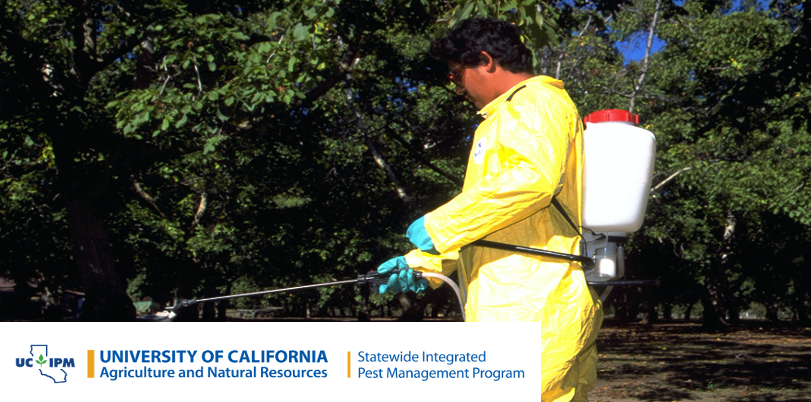

Course participants will learn to follow specific label instructions and the California Code of Regulations (CCR) and will be able to demonstrate how to select the proper PPE, use it, remove it, and dispose of it or clean and store it before, during, and after each incidence of pesticide handling and application. The course contains video so it requires a device that can play audio and video. If you do not require a certificate, you may view the course for free. The author of the course is Lisa Blecker, Pesticide Safety Educator, Colorado State University. This course is also available in a Spanish language version.
Pest Control Advisers, pesticide handlers, and growers
California Department of Pesticide Regulation (1.5 hours Laws & Regs), Certified Crop Adviser (1.5 IPM), and the Western Chapter International Society of Arboriculture (1.5 for Certified Arborists and 1.5 Practice for Board Certified Arborists).
This course must be completed by December 30 of the current year. Download the certificate immediately when you complete the course. You will not be able to retrieve your certificate after December 30.
- Technical support: UC IPM Online Training Support
Purchasing this course entitles you to receive a certificate of completion for continuing education units (CEU). You have the option to take this course either in English or in Spanish language. You will have access to both language versions after you make the purchase. If you do not require a certificate, you may view the course for free by enrolling in the English version or Spanish version.
La compra de este curso le da derecho a recibir un certificado de finalización para las unidades de educación continua (CEU). Tiene la opción de tomar este curso en inglés o en español. Después de realizar la compra tendrá acceso a las versiones en ambos idiomas. Si no necesita el certificado, puede ver el curso de forma gratuita inscribiéndose en la versión en inglés o en la versión en español.
Pest Control Advisers, pesticide handlers, and growers who take this course will learn to follow specific label instructions and the California Code of Regulations (CCR) and will be able to demonstrate how to select the proper PPE, use it, remove it, and dispose of it or clean and store it before, during, and after each incidence of pesticide handling and application.
Los asesores de control de plagas, los manipuladores de pesticidas y los productores quienes tomen este curso aprenderán a seguir las instrucciones específicas de la etiqueta y el Código de Reglamentaciones de California (CCR) y podrán demostrar cómo seleccionar el PPE adecuado, usarlo, quitarlo y retirarlo o limpiarlo y almacenarlo antes, durante y después de cada incidencia de manipulación y aplicación de pesticidas.
It is accredited by the California Department of Pesticide Regulation (1.5 hours Laws & Regs), Certified Crop Adviser (1.5 IPM), and the Western Chapter International Society of Arboriculture (1.5 for Certified Arborists and 1.5 Practice for Board Certified Arborists).
El curso está acreditado por el Departamento de Reglamentación de Pesticidas de California (1.5 horas de Leyes y Reglamentaciones), Asesor de Cultivos Certificado (1.5 de IPM), y Capítulo Occidental de la Sociedad Internacional de Arboricultura (1.5 para Arboristas Certificados y 1.5 Práctica para Arboristas Certificados por la Junta).
The course contains video so it requires a computer that can play audio and video.
El curso contiene video, por lo que requiere una computadora que pueda reproducir audio y video.
Contact and technical support (Contacto y apoyo técnico): UCIPMcourses@ucanr.edu
- Technical support: UC IPM Online Training Support
Sales Fraud in the Horse Industry provides participants the opportunity to learn how to protect themselves both as buyers, and as sellers, of horses from potential fraud. They will be able to discuss the different ways that horse sellers can help prevent legal disputes, examine the different tips to look for when buying a horse, identify how horse buyers can avoid legal disputes, assess the importance of a written sales agreement and determine what the true aspect of fraud is in a horse sale.This course offers a badge and is one of several available in the HorseQuest Badge Portfolio. This course includes a video, a learning lesson, and a quiz.
For information contact Kathy Anderson, kanderson1@unl.edu
- Teacher: Kathy Anderson
- Teacher: Colleen Brady
